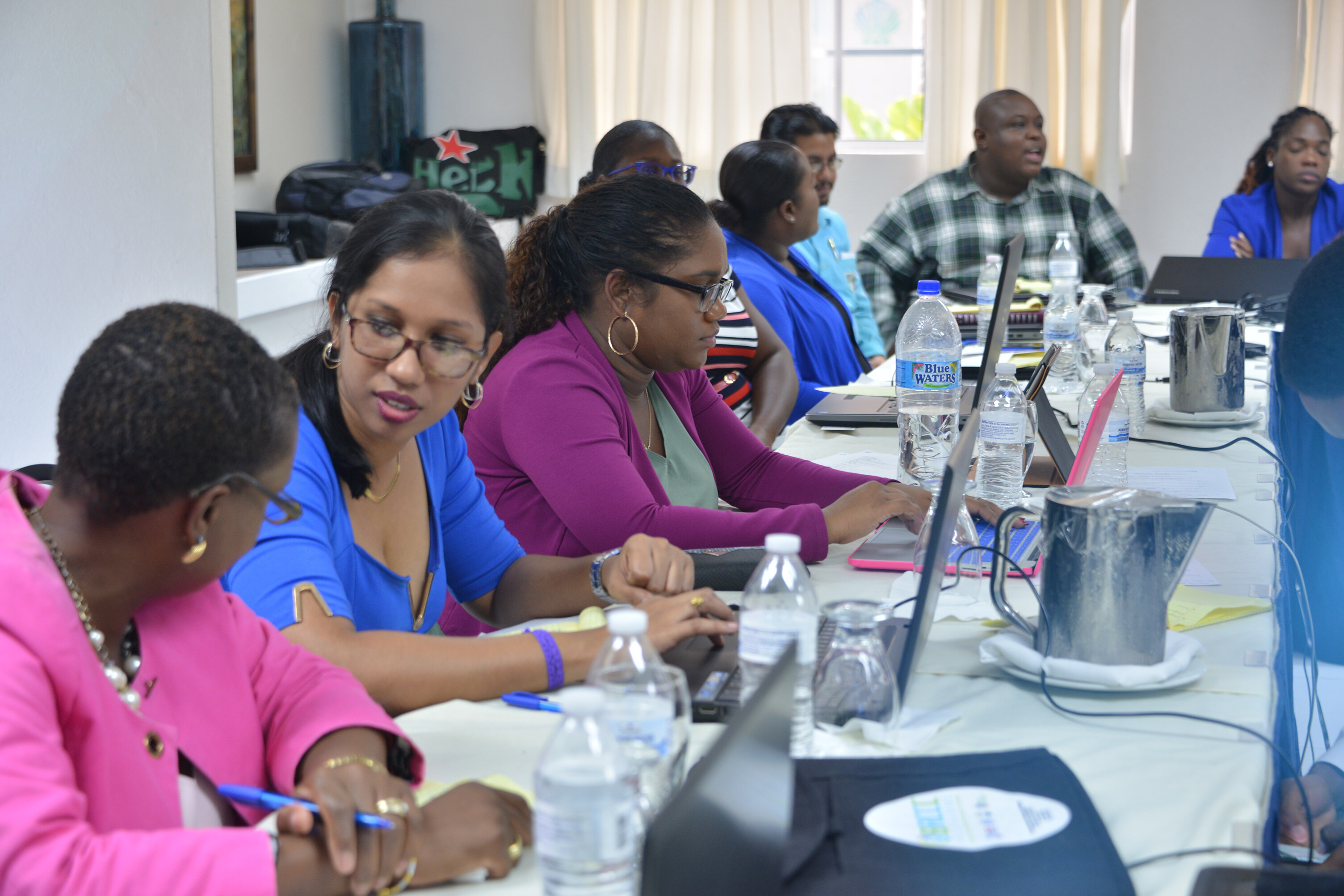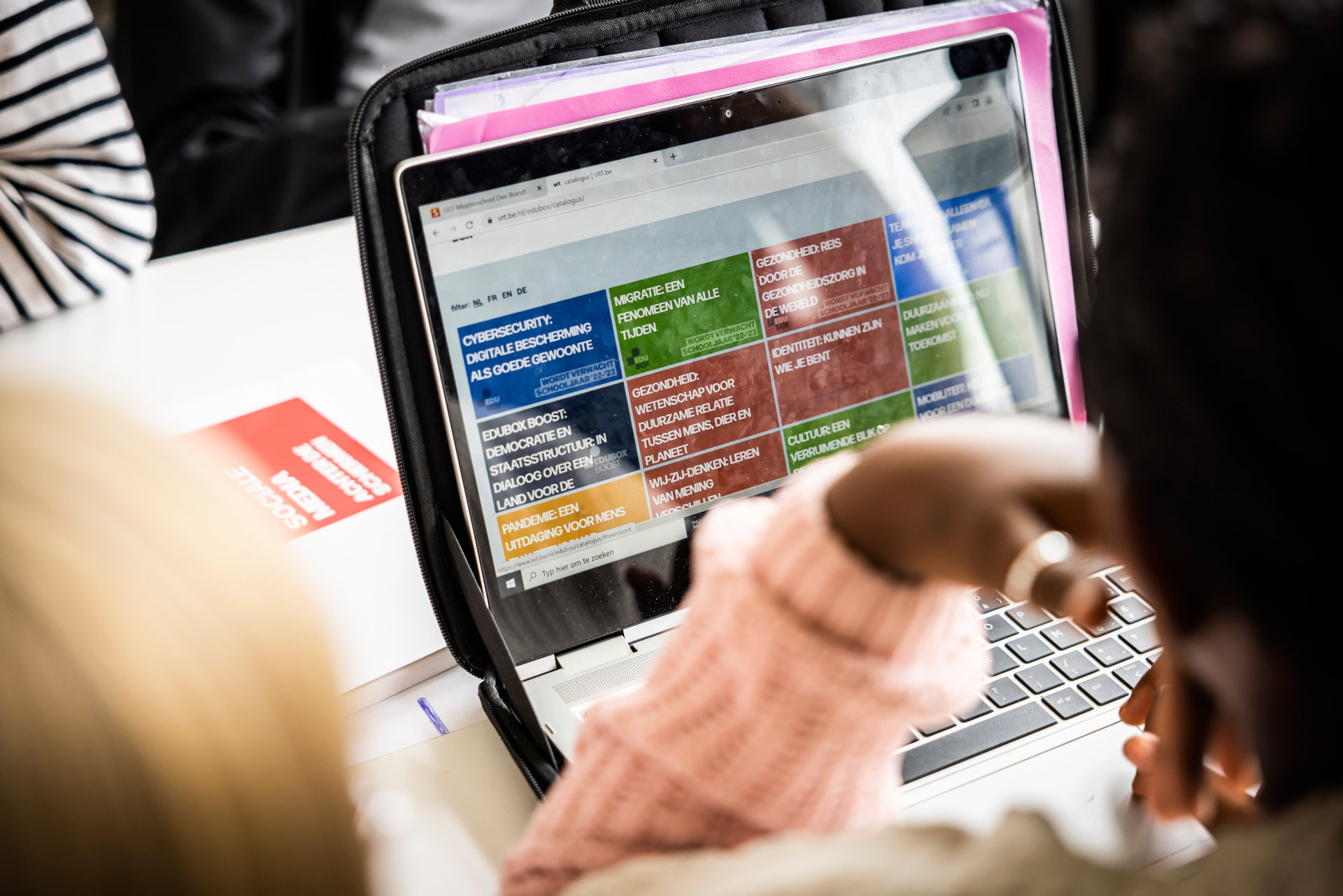PROJECT
Building media literacy: educators and journalists engage in UNESCO-supported bootcamps in the Caribbean
9th July 2024
Over the course of June 2024, the Public Media Alliance (PMA) hosted a series of bootcamps for Caribbean media professionals and educators, as part of the “Building the Next Generation of Media Literate Citizens” project.

This press release was originally published by UNESCO Kingston, who is supporting the Public Media Alliance’s “Building the Caribbean’s Next Generation of Media Literate Citizens” project.
In collaboration with the Public Media Alliance (PMA), a series of virtual bootcamps were held throughout June 2024, aimed at enhancing media literacy among Caribbean educators and journalists. The trainings – part of the wider “Building the Next Generation of Media Literate Citizens” project – were supported by the UNESCO Office for the Caribbean and the UNESCO International Programme for the Development of Communication (IPDC) and saw PMA’s partnership with the Media Institute of the Caribbean (MIC) and the Association of Caribbean Media Workers (ACM).
The bootcamps, conducted on 6 and 13 June for media professionals and on 21 and 24 June for educators, were designed to equip participants with the necessary skills to navigate today’s complex media landscape. The sessions also strived to strengthen relationships and understanding between participants.
The bootcamps for media professionals were facilitated by Kiran Maharaj, President of MIC, and Nazima Raghubir, Vice-President of ACM. Meanwhile, Corinne Barnes, a University of the West Indies lecturer and committee member of the Latin America and the Caribbean arm of UNESCO’s Media and Information Literacy (MIL) Alliance, and Joost van de Port, a media literacy expert from DW Akademie, led the educator bootcamps. Each facilitator guided participants through activities designed to enhance their media literacy skills, foster collaboration, and develop practical strategies for incorporating MIL principles into their work.
Speaking at the opening of the bootcamps for educators, Mr. Paul Hector, Advisor for Communication and Information at UNESCO Office for the Caribbean, highlighted the interconnectivity of issues, such as hate speech, cyberbullying, and sustainable development, and noted the positive role media literacy could play.
“This bootcamp is truly crucial in preparing you as educators to address these challenges. And by doing so, you can have a really key role in fostering more peaceful Caribbean schools and, of course, more peaceful Caribbean societies. […] And as you realise, this effort, of course, aligns with the Sustainable Development Goals, particularly those focused on quality education, peace, justice, and strong institutions.” – Paul Hector, Advisor for Communication and Information, UNESCO Office for the Caribbean
Similarly, Mr. Yuri Peshkov, Programme Specialist for Culture at the UNESCO Office for the Caribbean, said that while governments in the Caribbean are increasingly recognising the importance of digital transformation for sustainable development, there is a pressing need to upgrade human talent and to stay abreast with changes and initiatives.
“Despite the prominence of social media, traditional journalism remains a vital validator of information. And to maintain the influence, journalists must acquire MIL skills and adapt the use of digital tools to ensure the delivery of ethical and quality public information.” – Yuri Peshkov, Programme Specialist for Culture, UNESCO Office for the Caribbean
A diverse showing
Altogether, the 60 participants hailed from the four target countries: Barbados, Guyana, Jamaica, and Trinidad & Tobago. All educators were nominated by their respective Ministries of Education, while the media professionals were chosen through an application process.
“We were truly pleased by the diverse range of backgrounds represented in both our media professionals and educators. For our media professionals, we had reporters, programming coordinators, media owners, and even a library services worker, while our educators spanned 26 schools – both at the primary and secondary school levels – and covered subjects such as English and Mathematics to Chemistry, Economics, and Caribbean Studies.” – Desilon Daniels, Project & Advocacy Coordinator, Public Media Alliance
Over the course of four days, participants benefited from a rich agenda. For media professionals, the agenda included an introduction to MIL, group discussions, hands-on exercises, and peer feedback, and covered topics such as the role of AI in journalism, understanding digital platforms and algorithms, and identifying disinformation and online hoaxes.
Meanwhile, the educators’ bootcamps zeroed in on MIL’s importance and key concepts, group discussions on teaching challenges, and practical skills in news literacy. Notably, the training reaped tangible outcomes, with sessions focusing on integrating MIL into various subjects. At the end of the educator bootcamps, participants developed and presented the foundations of lesson plans for implementation in their schools. The educators are continuing to flesh out these plans and have opted into a WhatsApp group to continue to collaborate, share updates, and receive advice on media literacy initiatives.
Looking ahead
PMA plans to conduct a second round of training for journalists in October. Additionally, a digital library of media literacy resources has been developed to support educators and journalists, featuring global media literacy, digital literacy, and news literacy resources, including expert videos. This library is already accessible and will be continuously updated. Both teachers and media professionals will be encouraged to use the library and invited to provide feedback to help improve the resources.
PMA will also host a regional consultation for stakeholders across the Caribbean. This consultation will recap the project outcomes, discuss lessons learned, and explore potential plans for integrating media literacy into school systems and newsrooms.
For more updates and information on upcoming events, visit the project page.
Related Posts
6th June 2024
First Caribbean media literacy bootcamp kicks off
Public Media Alliance will today begin…
29th April 2024
Developing a library of media literacy resources for Caribbean educators and journalists
Behind the scenes: In this Insight…
9th January 2024
New PMA project: Building the Caribbean’s next generation of media literate citizens
PMA's new media and information…
9th December 2022
OUT NOW | Caribbean mis- and disinformation Situation Report
Greater media literacy needed to…



